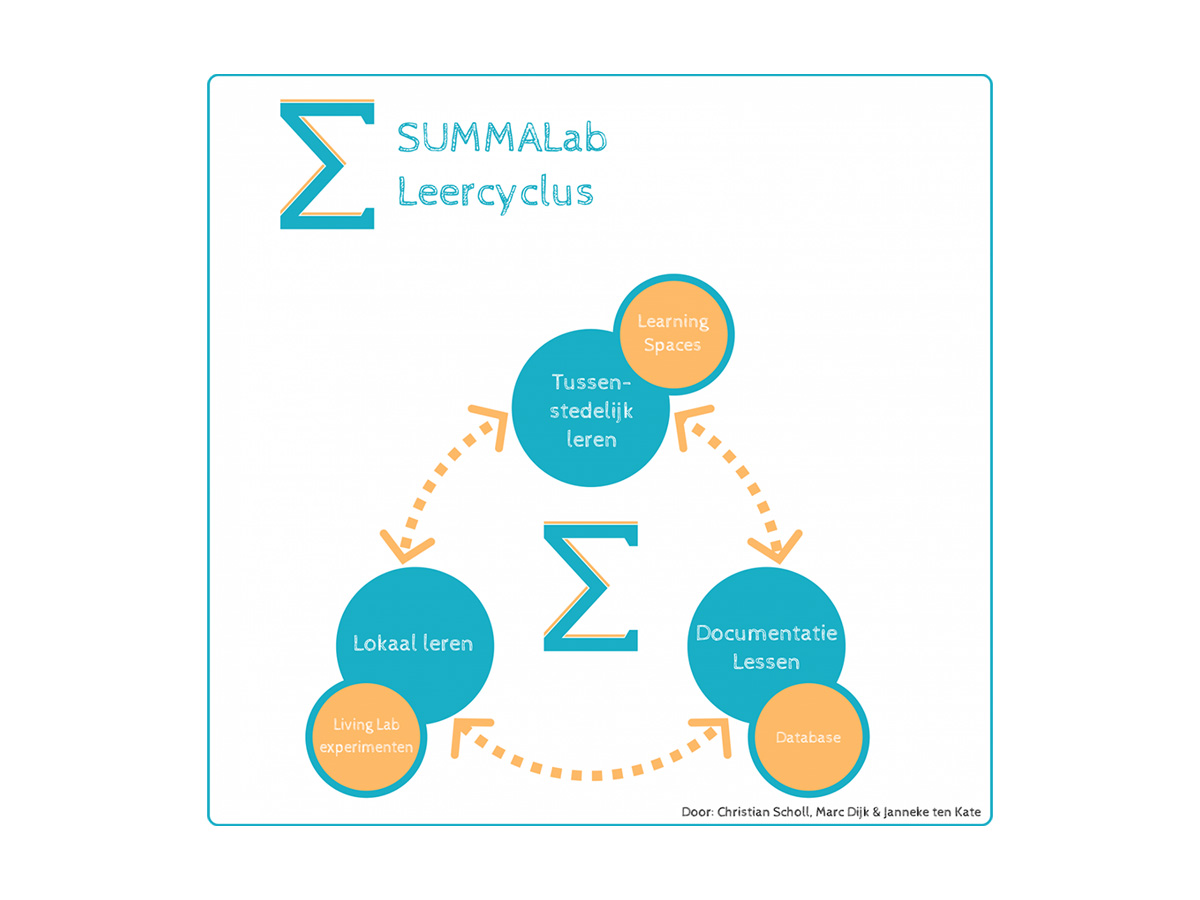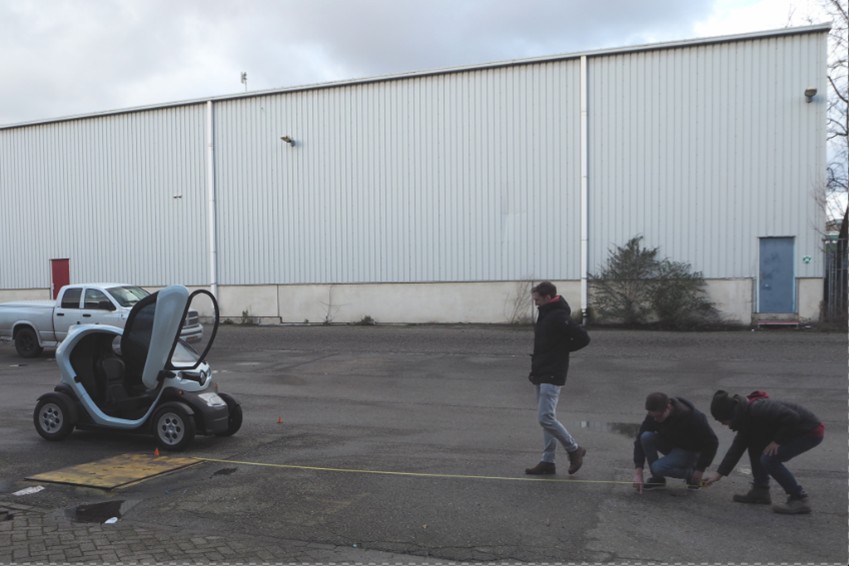Smart Urban Mobility MetA Lab (SUMMAlab)
Researchers in the Smart Urban Mobility MetA Lab (SUMMAlab) are working on traffic mobility issues. They develop tools and methods to evaluate and assess these issues.
Centre of Expertise Digital Operations & Finance

Researchers in the Smart Urban Mobility MetA Lab (SUMMAlab) are working on traffic mobility issues. They develop tools and methods to evaluate and assess these issues. They base their work on business models, technical and economic feasibility studies and scaling-up possibilities. They provide practice-oriented advice on setting up and evaluating sustainable experiments within the mobility domain.
In the SUMMAlab, cities, knowledge institutions and companies in the regions of Amsterdam, The Hague, Delft and Rotterdam participate in the SUMMAlab to gain and share expertise together. The participation of several cities facilitates a socially responsible upscaling. The Netherlands is urbanising. Congestion is increasing in all forms of transportation. These factors lead cities to experiment more with innovative solutions. These solutions aim to transport more people and goods with fewer transport means, lower emissions and occupying less space. The SUMMAlab is a network of medium-sized and large cities, metropolitan regions, provinces, private partners, knowledge institutions, companies and resident organisations, where these kinds of experiments take place. The lab facilitates the learning process between the regions. The collaboration effort accelerates the scaling up of promising concepts, as several cities or regions are working on similar solutions.
Experimental research
All mobility and logistics concepts that focus on sustainable and liveable accessibility fit within the SUMMAlab. To achieve the objectives of sustainable mobility and create a liveable city in a region, we often need to use a combination of measures. Within the SUMMAlab we distinguish three main categories of experiments:
How do you keep the last mile of distribution affordable, viable and sustainable? The SUMMAlab investigates the possibilities of using automated shuttles and mobile robots for people and goods, shared bicycle systems and micro-mobility.
- Last mile solutions
- Door-to-door solutions
- Which door-to-door solutions are possible to provide sustainable and liveable accessibility? In this context, the lab is researching possibilities for car and ride sharing, carpooling and Mobility/Transport as a Service (M/TaaS). With this latter option, users can plan, book and pay for multiple types of mobility services through a common digital channel. This form of mobility focuses not on possession but on the offered service.
- Urban built infrastructure
The SUMMAlab also conducts experimental research in the field of urban built infrastructure. This concerns parking facilities, loading/unloading locations, parking regulations and pricing, and access restrictions for specific types of vehicles.
Smart Mobility
Within the framework of the SUMMAlab, the research group Smart Sensor Systems develops and evaluates a tool for autonomous driving based on sensor technology. This consists of a modular sensor platform and AI technologies (navigation, mapping and object recognition).
This research group is also working on an interface with the Urban Mobility Observatory, a comprehensive system of sensors and ICT infrastructure to observe mobility and travel behaviour and combine data from different types of measurements (cameras, mobile phones, surveys). With this interface, the Smart Sensor Systems research group wants to support experiments in the field of (autonomous) vehicles and infrastructure. The work contributes to the Smart Mobility research line of the research group and the Centre of Expertise.
Team
The research team of the SUMMAlab consists of the following people:
- Rufus Fraanje
Rufus Fraanje is the SUMMAlab project leader and senior lecturer in the Mechatronics degree programme within the Faculty of Technology, Innovation and Society (TIS). He is also a mechatronics researcher at the Smart Sensor Systems research group. Email: [email protected].
- John Bolte
John Bolte is the leading professor of the Digital Operations & Finance Centre of Expertise. He is also a professor in Smart Sensor Systems at the TIS faculty.
Intended duration of the project
The SUMMAlab project started on 1 October 2019 and is expected to run until 1 January 2024.
Collaboration
Within The Hague University of Applied Sciences, the SUMMAlab works closely with:
- the faculty Technology, Innovation and Society;
- the Robotics and Vision Design minor of the Mechatronics degree programme;
- the Embedded Systems minor of the Electrical Engineering degree programme;
- the Spatial Development degree programme.
The research partners outside of THUAS are:
|
|
|
|
|
|
|
|
|
|
|
|
|
|
|
Funding
This project is funded by NWO Living Labs.
Media
www.summalab.nl
www.nwo.nl/onderzoek-en-resultaten/onderzoeksprojecten/i/14/31814.html

Renault Twizy test system for implementing and evaluating sensors and AI technology for autonomous vehicles.
2D and 3D mapping based on a simulated 3D environment with the Renault Twizy driving in the northwest corner of the TU Delft campus, which includes the building of The Hague University of Applied Sciences.